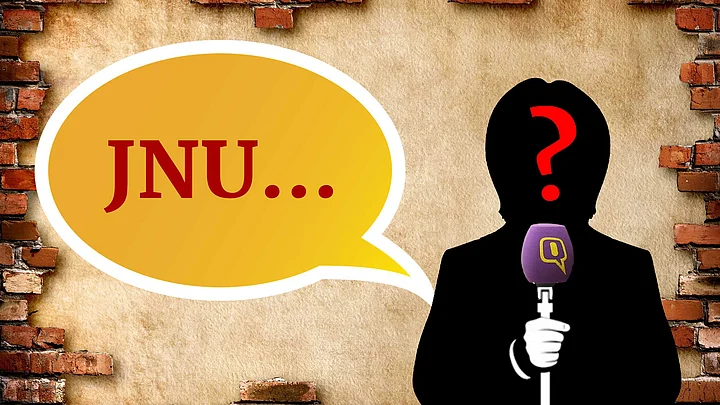The arrest of JNU Students Union president Kanahiya on charges of sedition in Delhi, is all over the media. The issue is being hotly debated on Facebook and Twitter; even international universities have come forward to express their solidarity.
But down south in the IT city Bengaluru, few know what JNU is and even fewer are aware of the reasons behind the protests and Kanahiya’s arrest.
“I have seen this issue coming up in Times Now debates every now and then, but to be honest, since I was not interested, I didn’t follow it much,” tells a student of Jyoti Niwas College from Bengaluru.
‘What’s Happening There?’
Miles away from Delhi, at various colleges in Bengaluru the conversations usually start with a counter-question – “What is JNU and what’s happening there”, and end with a faint idea of the ho-halla through some random Facebook posts, a mention of Afzal Guru, a few ‘anti-national’ slogans and lot of media noise around ‘something’.
“I don’t know what the issue is all about in detail, but if they were shouting anti-national slogans it’s bad. If you can tell me a bit more about it, I might be able to tell you my opinion,” tells a student from the same college shying away from the camera.
To be honest I haven’t followed much. I am a student of commerce and not a student of social science, so I don’t know much about it. I heard in the news that some students said something ‘anti-national’ and they are protesting, but I don’t know in detail.Student, St Joseph’s College
Pleading that such issues are popular on Facebook and so the ones who stay away from social media don’t get to know much about them, one student added,
I don’t know what is JNU, I heard in the news that a few students are protesting against the hanging of a person, but I don’t use social media much, so I don’t know what’s happening there. In my view, students should not protest and make a big issue out of it.Student, Christ University
Right to Opinion
To JNU’s luck, a few students do know about the issue, and for them its primarily about freedom of speech and the right to have an opinion.
What is the point of education, if we can’t have an opinion? Why do we have Article 19 (A)? I am a student and until I have an opinion on things, I cannot dream (for a better world), and if I cannot dream how will I work towards fulfilling those dreams.Student, Jyoti Niwas College
I got to know from the newspapers that the issue is about hanging a terrorist and all that. Students have a right to protest but, you can’t be shouting anti-india slogans. I mean, they said things that were probably last heard during India’s independence struggle. I believe as students, they shouldn’t be arrested, but they definitely need a warning.Student, Christ University
Much Ado About Nothing?
What many of the students do not say but do mention casually is, that the “government is wasting time on something as basic as a few students sloganeering,” and probably an issue that has been blown out of proportion.
But is this a general disconnect with issues, or a reality check of how media centered in the national capital operates in a bubble?
Kancha Ilaiah a prominent Indian writer, academician and Dalit activist from South believes it’s a mix of both.
The response of the student community in southern India to Rohith Vemulla’s death was huge. Many colleges participated in protest walks and held meetings. You need to understand that the JNU issue is quite entangled. It has terrorism angle to it, it has a national interest angle to it. The BJP has managed to mould it in a certain way. This is the reason you see, international media has preferred to not get into it.
(At The Quint, we question everything. Play an active role in shaping our journalism by becoming a member today.)
